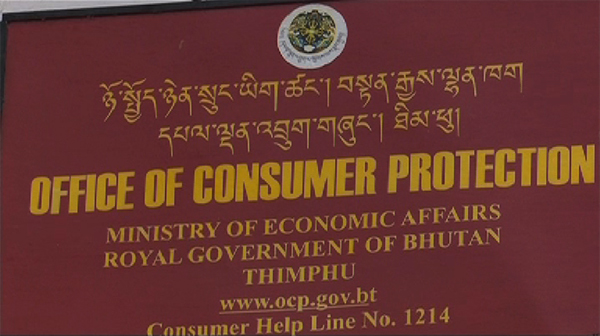 Amid the pandemic, there are stories of people helping each other, volunteers, and most importantly unity in the fight against the virus. However, just like the presence of a villain in any fairy tales, there are some people who are taking advantage of the situation and exploiting their own countrymen.
Amid the pandemic, there are stories of people helping each other, volunteers, and most importantly unity in the fight against the virus. However, just like the presence of a villain in any fairy tales, there are some people who are taking advantage of the situation and exploiting their own countrymen.
While the border is closed and the import restricted to necessities, the price of what remains in the stock across the country skyrocketed leaving many consumers frustrated and some even lodging complaints to the Office of Consumer Protection (OCP). The OCP received nearly 600 complaints this year. It is an increase by manifolds compared to the previous year. Only 32 complaints were lodged with the office last year. The office collected more than Nu 1 M as fines from 120 different business entities from across the country.
A few weeks back, a case of beer that cost less than Nu 600 was sold at nearly Nu 1,000 in Thimphu. Like this, most complaints were regarding the rise in the price of commodities besides the sale of expired goods and not providing services.
“Many people lost their income due to the pandemic and price of commodities including the vegetables have increased a lot. Shopkeepers blamed COVID-19. Some people were selling onions at Nu 300,” said Tshering Dorji, a resident of Thimphu.
“Due to the pandemic this year, the price of commodities has increased. Shopkeepers also don’t have a choice because it is difficult for them. Similarly, buyers have no choice but to buy. In the end, it is the buyer who suffers,” added Nimchu, also in Thimphu.
However, according to the OCP, the rise in the price of commodities is unavoidable at this time.
“There is a slight increase in the price of general commodities in the market. This is mainly attributed to the changing factors in the market. Some of the prices have increased from the sources itself and there is also the additional cost incurred due to the pandemic protocols such as cost incurred in transport and transhipment,” said Jigme Dorji, the Chief Programme Officer with the OCP under the Economic Affairs Ministry.
And according to the shopkeepers, the pandemic has upended supply chain and curbed movement causing price rise.
“These days, it is difficult to get commodities. Earlier, we can get whatever goods we want from the distributors. Due to the pandemic, there is a disruption in the supply chain. If the price of goods increases from the source, it will definitely increase here,” said Tashi Wangdi, a shopkeeper in Thimphu.
“Before the pandemic, we can get goods at reasonable prices from India. Due to lockdown measures and other protocols of the pandemic, importing goods has become difficult. So when we add the transportation cost and other costs, the rate increases,” added Dorji, also a shopkeeper in Thimphu.
However, the OCP officials said some business entities are taking advantage of the situation. The office, therefore, keeps track of price movement in the market. And the Market Price Information on the Economic Affairs Ministry’s website is updated every month. People can know the price of essential goods in every district including gewogs.
Kinley Dem






